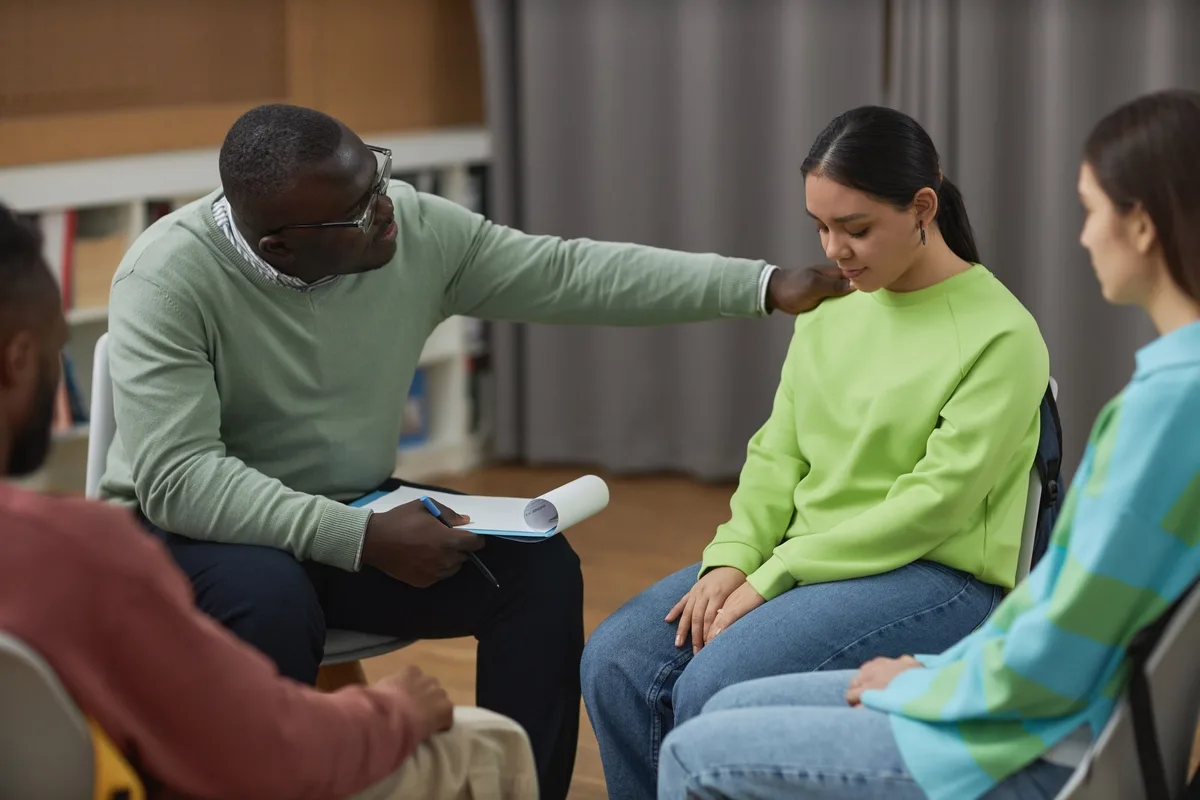24/7 Helpline:
(866) 899-221924/7 Helpline:
(866) 899-2219
Learn more about Dual Diagnosis Rehab centers in Randolph County
Dual Diagnosis Rehab in Other Counties

Other Insurance Options

Providence

Absolute Total Care

Amerigroup

UnitedHealth Group

Medical Mutual of Ohio

WellPoint

Carleon

Health Net

Sliding scale payment assistance

Health Partners

Sutter

Holman Group

CareFirst
Beacon

Magellan

UMR

ComPsych

Evernorth

Coventry Health Care

Regence

Triad Therapy
Triad Therapy is an outpatient treatment specializing in mental illness and addiction issues. Servic...

Randolph Fellowship Home
Randolph Fellowship Home, located in Asheboro, North Carolina, is a nonprofit substance use disorder...

Daymark Recovery Services
Daymark Recovery Service, situated in Asheboro, North Carolina, is a reputable dual diagnosis behavi...


























































ASG Services
ASG Services is a private rehab located in Asheboro, North Carolina. ASG Services specializes in the...

Randolph Fellowship Home – Mangum House
Randolph Fellowship Home - Mangum House is a private rehab located in Asheboro, NC. Randolph Fellows...

New Beginnings Youth Facility
New Beginnings Youth Facility is a private rehab located in Ramseur, North Carolina. New Beginnings ...

ADS Alcohol & Drug Services
ADS Alcohol & Drug Services is a CARF-accredited substance abuse rehab center in Asheboro, NC that p...

Behavioral Associates of Asheboro
Behavioral Associates of Asheboro is a private rehab located in Asheboro, North Carolina. Behavioral...

AA – Alcoholics Anonymous
AA – Alcoholics Anonymous is a non-profit rehab located in Asheboro, North Carolina. AA – Alcoholics...

Randolph County Day Reporting Center
Randolph County Day Reporting Center is a public rehab located in Asheboro, North Carolina. Randolph...


























































